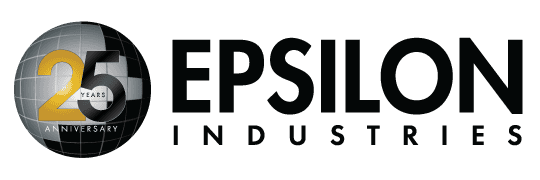
Epsilon attended the most recent Hanson Wade Advanced Manufacturing Facility (AMF) Construction conference in Nashville in late July. Attendance at this conference is growing, up an estimated 50% from the November 2023 AMF event where our team joined the speakers’ roster. The growing interest in supporting the design and construction of amazingly complex projects such as these is an encouraging sign. Here are a few take-aways from the latest conference:

Battery Market is Not Just About EV – Much has been made recently about the softening of the electrical vehicle (EV) market – based on unrealized consumer demand – and the corresponding threat to the continued growth and longevity of the EV battery construction market.
It’s good to keep in mind that battery manufacturing is also critical to a parallel market, generally referred to as energy storage (ES). ES has applications in growth markets ranging from residential home-storage to utility-scale systems in support of renewable energy and resiliency strategies. For companies that support battery manufacturing facility design and construction, the clear message at the conference was: stay flexible and stay diversified.

Skilled Labor Shortages Affect More Than Construction – Those of us focused on solving challenges in the construction industry are very familiar with the skilled labor shortages that plague construction, and the impacts on delivering successful projects for our clients.
However, several conference speakers acknowledged that labor shortages also affect project owners abilities to staff and operate the complex manufacturing facilities being driven by reshoring initiatives. So the business case for proceeding (or not) with any given AMF project will be challenged by the costs and complexities of the (relatively short) construction phase, and also by the longer-term prospect of reliable and effective operations.

Balancing Sustainability with Practicality – A site selection firm that specializes in industrial searches shared their perspectives on the dynamics surrounding the early development of AMF projects. Interestingly, many clients are beginning to relax some of the more extreme goal setting around carbon and resource reduction, purely from a practical standpoint.
Particularly with projects that require large amounts of power (such as the AMF projects discussed at this conference), electrical power availability and reliability often becomes the first criteria used for the initial site selection, even before ranking potential sites for transportation logistics, labor availability and cost, economic incentives, etc.
Furthermore, some hard and fast sustainability goals have been relaxed as project teams realize the true cost of meeting them, given the magnitude of AMF power requirements. Rather than abandoning the goals altogether, however, clients are taking a more pragmatic approach – for instance, setting a glidepath for a more gradual adoption of those goals while incorporating options for future inclusion of renewables into the base design.
Obviously there are many topics covered at any given conference. These three takeaways are particular areas of interest for the Epsilon team and our clients. Reach out to the team if you want more insight into how these and other topics may impact an upcoming project.

